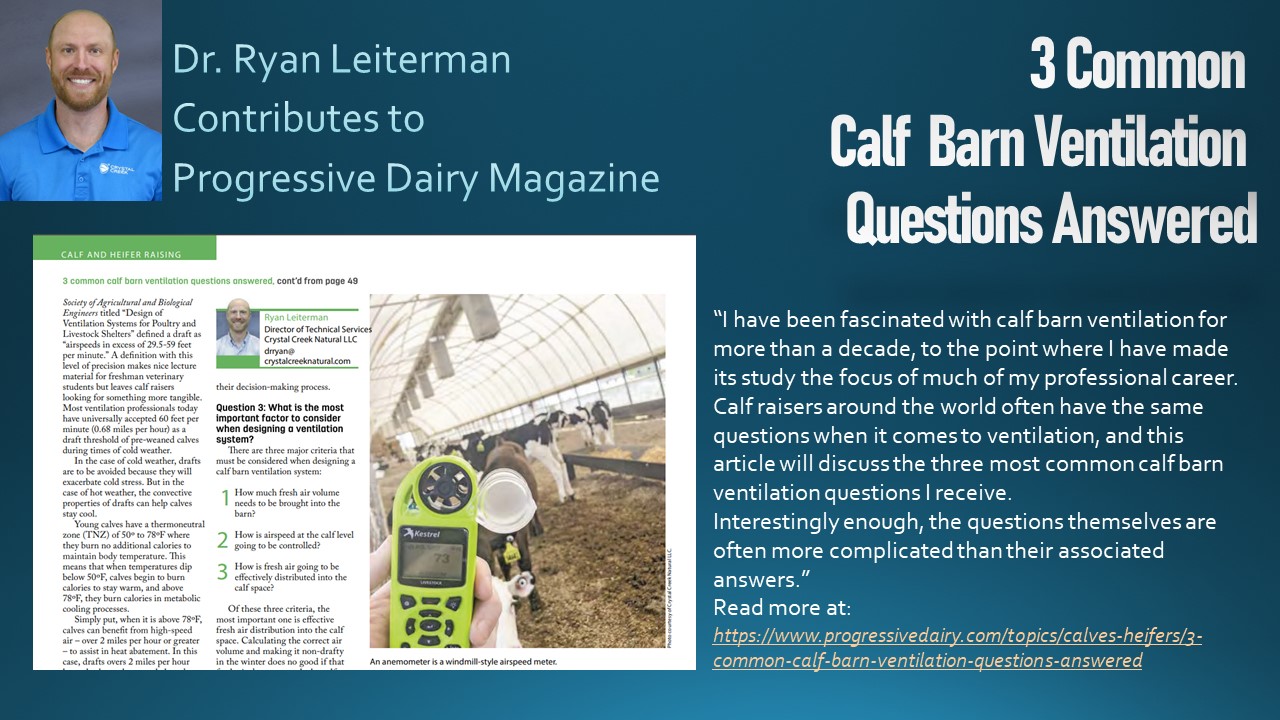Dry Cow Nutrition and Management: The Key to Quality Colostrum
Click here to view as a pdf: Dry Cow Nutrition and Management
Colostrum is one of the most important factors in raising healthy calves. Besides assuring a healthy start to the calf’s life, colostrum is known to have positive effects that increase a calf’s potential as a 1st lactation heifer. Colostrum is commonly credited for providing antibodies like immunoglobulin G (IgG), but it also supplies hormones, white blood cells and calories. With colostrum being such a vital component of calf health, it is of paramount importance that cows produce adequate volumes of high-quality colostrum. Dry cow vaccination protocols, management practices, and most importantly, dry cow nutrition, all have far-reaching influences on colostrum production and colostrum quality. Guidelines for measuring colostrum quality can be found in the calf section of Crystal Creek’s annual product catalog.





 By Ryan Leiterman, D.V.M.
By Ryan Leiterman, D.V.M.